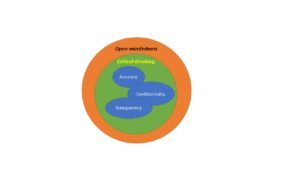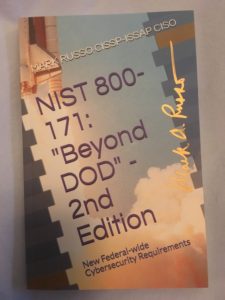CYBERLAW: The Stored Communications Act (SCA)

A Case Analysis
SUPREME COURT OF THE UNITED STATES
City of Ontario, California, Et. Al. v. QUON Et Al.
Certiorari to the United States Court of Appeals for the Ninth Circuit
No. 08-1332. Argued April 19, 2010—Decided June 17, 2010
FACTS
The City of Ontario (the “City”) obtained alphanumeric pagers that both sent and received text messages. They were provided to members of the police force for official business purposes. Prior to acquiring the pagers, the City announced a “Computer Usage” policy specific to government provided Internet and Electronic mail; it did not explicitly identify pagers at that time. Officer Quon acknowledged and signed that policy prior to this incident. Subsequently, on April 29, 2002, the City issued a memorandum including pagers under this same policy.
The Chief of Police was concerned about pager usage overages and requested transcripts from the wireless carrier to include other officers and for Officer Quon’s based on their respective duty schedules. “Sexually explicit” communications were discovered as part of the review of Quon’s pager transcripts; that review was only specific to his activities during duty hours. He was subsequently disciplined for violating departmental rules to include misuse of his government furnished pager.
ISSUES
The main issue was whether Quon’s Fourth Amendment rights were violated. Was this also a violation of the federal Stored Communications Act (SCA)? Did the wireless carrier also violate the SCA?
RULES
Fourth Amendment: The Supreme Court (the “Court”) held, based on the case of O’Connor v. Ortega, that there was no violation. The search of his “…text messages was reasonable” (City of Ontario, California, et. al. v. Quon, et. al., 2010, p.2).
Stored Communications Act (SCA): That claim was not presented to the Court for consideration; however, it addressed it in discussion only. The relinquishing of the transcripts to the City by the wireless carrier was reasonable. Also, violating specifically SCA protections could not be used as a sole basis of an unreasonable search under the Fourth Amendment.
ANALYSIS
I agree that the Supreme Court was correct in its final determination. In O’Connor v. Ortega, the Supreme Court recognized that while a government employee’s right to privacy in the workplace was not insignificant, it was “…far less than those found at home or in some other context,” (O’Connor, et. al. v Ortega, 1987, p.7). Much like this case, the government has a clear interest in the “…efficient and proper operation of the workplace,” (Ibid., 1987, p7).
The Court discusses its disagreement with the Ninth Circuit Court and basis its objection with respect to O’Connor v. Ortega. This case establishes two specific criteria required to determine unreasonable search. First, whether a government agency is of such a nature that there is no expectation of privacy. I would contend that in law enforcement there can never be an expectation of privacy. Why? Because their action or inaction during a criminal case or an internal investigation of wrongdoing by a fellow employee are all subject to discovery. Their motivations, prejudices, conflicts of interest must be “public” in terms of the ultimate possibility of being reviewed in a formal court case or internal administrative investigation such as this.
Secondly, the Court reiterated that any investigation of an employer should be judged on the “…standard of reasonableness under all the circumstances,” (City of Ontario, California, et. al. v. Quon, et. al., 2010, p.2). Was the Police Chief reasonable in his investigation of Quon? I would argue that he was. He redacted all transcript information not specific to his duty during a two month period. Further, Quon did sign a City Computer Usage policy, that while it was not specific to pagers at that time, a subsequent update was transmitted to he and his fellow officers prior to the distribution of the pagers. I believe that while prudent, an updated memorandum specific to pager use was not necessary. The use or misuse of government resources is an explicit responsibility of any and all public employees to include police officers.
Finally, I found that the Ninth Circuit Court’s finding was grossly wrong based upon a lack of understanding of the responsibility of government employees. They stated that if the “…purpose for the audit was to determine if Quon was using his pager to ‘play games’ and ‘waste time’ then the audit was not constitutionally reasonable,” (Ibid., p. 5), then the Ninth proffered two objectionable examples. As stated above, government employees are responsible for the proper use, care and execution of public resources under their charge. I would contend that the use by Quon to exchange excessive and sexually explicit materials would typically be counter to any Computer Usage policy, and would avail him to potential administrative punishments; the Ninth’s rationale defies the public trust and responsibilty expected of all public officials.
CONCLUSION
What is vital about this decision is the recognized need by the Court to balance individual privacy rights with the need for governments to maintain good order and discipline. Justice O’Connor writing the plurality decision in O’Connor v. Ortega stated that there was a need to determine “…the standard of reasonableness with which to judge a … search of an employee’s work area requires a balancing of the government’s objectives alleged to justify the search against the intrusiveness of the search…, ” (Kilburn, 1988, p. 795). The conclusion aptly recognizes a greater responsibility by government employees to not abuse taxpayer provided resources. While Fourth Amendment protections are premier under the Constitution, government employees are afforded a lower standard with regards to an overall expectation of privacy in the use of publicly provided resources.
The Court adequately establishes a rubric, vague as it might be, that it depends on the context of a search of a person’s area in the public domain and under what circumstances a reasonable search is being conducted. In O’Connor v. Ortega, Justice Blackmun discusses an example of a teacher conducting a search and his requirements of meeting the standards of probable cause that are not as stringent as a law enforcement officer. While this case does involve law enforcement officers, I believe that the Chief of Police substantially understood the Fourth Amendment implications and limited his search specific to potential wrongdoing (even under a guise of resource oversight—pager cost overages). The Court sufficiently afforded a means to balance the needs of the individual with the needs of the government specific to the privacy rights of public employees.
EDITOR’S NOTES: These are the opinions of the author, and have no legal implications to the original findings of the courts.
REFERENCES
City of Ontario, California, et. al. v. Quon, et. al., 08-1332 (United States Supreme Court June 17, 2010).
Kilburn, E. M. (1988). Fourth Amendment: Work-Related Searches by Government Employers Valid on Reasonable Grounds. Journal of Criminal Law and Criminology, Vol 78, Issue 4, Winter, 792-827.
O’Connor, et. al. v Ortega, 85-530 (United States Supreme Court March 31, 1987).


Ms. Columbus has worked in the Intelligence Community (IC) for over 20 years. She retired from the US Air Force in 2014 after working as a Senior Advisor providing authoritative advice on all aspects of Cyberspace operations, force structure and organizational concepts. She oversaw strategic support activities to enable the right mix of cyber capabilities for future operations.









